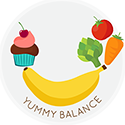How often do we do things, say things, without even consciously thinking about it?

Think about it. When someone asks you “how are you?”, many of us would immediately answer, “I’m good thanks and you?” on reflex. We might not be but that’s just what we say. I’m sure most of us have been in that awkward situation where that conversation actually continues with another “I’m good thanks and you?” again by the person who asked in the first place. Why? Because that’s the response we give when we are asked how we are. I have had my share of mental face palms of restarting that conversation loop.
It’s funny isn’t it? It’s like we are a computer system programmed to respond with “I’m good thanks and you?” whenever we are asked how we are. Actually, in a way we were programmed to do that. If you think about it, ask a young child “how are you?” and they might not answer you. They might look at you funny, they might hide, they might cry, they might tell you everything that has happened in their day. It’s not as predictable is it? Sometimes their parent or guardian will tell them what to say. “Say, I’m good thanks and you?” and maybe they will repeat it. If we are consistently told to respond this way and we repeat this response every time we are asked, it starts becoming second nature. We don’t really think, we just do. We go into autopilot mode.
Good thing we are more sophisticated than a computer. A computer would need a computer expert to reprogram it to give a different response; however, we can actively change our response ourselves. If we actually processed the question, we can think about how we really are and choose to respond accordingly, whether the answer is the truth or not, it becomes a conscious choice to answer it in the way we choose instead of the auto-reply. All we need to do is realise we are on autopilot, switch it off, and choose an output for the situation.
This can apply to our eating as well. We can be eating on autopilot. Not because we want to, not because we need to. Just because we do.
- Every time it’s morning tea time, have biscuits with a cup of tea.
- Sit in front of the TV, grab a bag of chip.
- Finished dinner, have a bowl of ice cream.
Repeat, repeat, repeat. And you’re on autopilot mode.
It’s hard to enjoy food when you’re on autopilot. You can think you enjoyed food because your memory is that you do, but that doesn’t mean you are actually enjoying it in the moment. If you don’t even want the food, it’s also hard to enjoy what you don’t want. Again, you can think you want it because the trigger for the output has been activated. As with the examples given above – it’s morning tea time, just finished dinner, sitting in front of the TV, you eat it, but sometimes you don’t even know why.
Auto pilot mode makes it hard to know what you want to be able to eat what you want.
Just like how we have the power to change our “how are you?” response, we can also change our response to our trigger as well with our eating. We just need to be aware of them. Then, we can switch off autopilot mode and make a conscious choice, whatever that may be. For example, when it’s morning tea time, instead of automatically getting biscuits and a cup of tea, you could ask yourself what would you like to do this morning tea break? That way, it becomes a conscious choice. Whether you want a cup of tea and biscuits or just a cup of tea or going for a walk, you can actually do what you want for that specific day as oppose to what you do on autopilot everyday.
When you know what you want, you have the chance to do or eat what you want. But first, you have to know whether you are doing something consciously or unconsciously.
There are many things we may have programmed ourselves to do automatically throughout our life time and some of our eating habits may be affected by this as well. If you want to eat and enjoy more of what you and have less “why did I eat that?” moments, download my FREE e-guide “Eat what you want, when you want” to get your started.

2 comments
Informative post. Thank you for sharing. Stay blessed.
Thank you for reading Payal, I’m glad you found that informative. Stay blessed too!